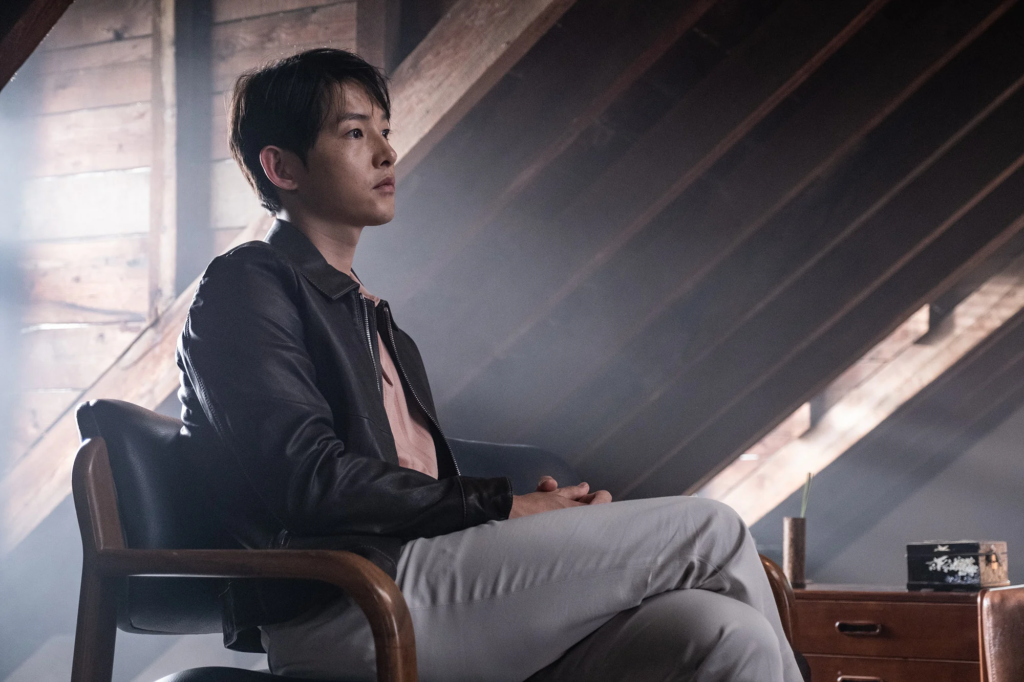A City of Shadows: Unraveling Corruption and Betrayal in Bogota
Kim Seong-je’s Bogota is a gripping crime thriller that plunges into the heart of Colombia’s capital, a city teeming with both vibrant life and the dark underbelly of corruption The film centers around Soo-hyun, a Korean immigrant who arrives in Bogota with dreams of building a better life, only to find himself entangled in a dangerous web of organized crime, political maneuvering, and personal betrayal Bogota is more than just a fast-paced action film; it’s a nuanced exploration of ambition, survival, and the moral compromises one makes in a world where the lines between right and wrong are constantly blurred

A Stranger in a Strange Land
Soo-hyun’s outsider status is crucial to the film’s narrative As a Korean immigrant, he is immediately marked as different, making him both vulnerable and resourceful His initial naiveté and optimism gradually give way to a hardened pragmatism as he navigates the complexities of Bogota’s social and criminal landscape This journey of transformation is a central theme, as Soo-hyun is forced to adapt and make difficult choices in order to survive His experience reflects the challenges faced by many immigrants who seek opportunity in a new land, often encountering unforeseen obstacles and prejudices
The Tangled Web of Power
The film skillfully portrays the intricate network of power that permeates Bogota society From corrupt officials and ruthless gangsters to opportunistic businessmen, the city is depicted as a place where everyone is vying for control and willing to cross moral boundaries to achieve their goals Bogota doesn’t shy away from depicting the harsh realities of this environment, showcasing the violence and desperation that often accompany such power struggles The film’s depiction of corruption is not simplistic; it acknowledges the systemic nature of the problem, where individuals are often caught in a cycle of exploitation and forced to participate in illicit activities just to survive
Moral Ambiguity and Shifting Allegiances
One of the most compelling aspects of Bogota is its exploration of moral ambiguity The characters are not simply good or evil; they are complex individuals with their own motivations and flaws Soo-hyun, in particular, undergoes a significant moral transformation as he becomes more deeply involved in the criminal underworld He is forced to make difficult choices, often compromising his own values in order to protect himself and those he cares about This blurring of moral lines adds depth to the narrative and raises thought-provoking questions about the nature of justice and the price of survival The shifting allegiances and betrayals that occur throughout the film further emphasize the precariousness of trust in a world dominated by self-interest
A City as Character
Bogota itself plays a vital role in the film, serving as more than just a backdrop The city’s vibrant culture, its bustling markets, and its stunning landscapes are juxtaposed with the poverty, violence, and corruption that plague its underbelly This contrast creates a sense of tension and underscores the complex realities of life in Bogota The city becomes a character in its own right, reflecting the internal struggles of the protagonist and the moral decay that permeates the society
A Reflection on Modern Society
Bogota is not just a thrilling crime drama; it’s also a reflection on broader societal issues, including corruption, inequality, and the challenges of globalization The film’s depiction of Bogota serves as a microcosm of the world, highlighting the universal struggles for power and survival that exist in many societies Through Soo-hyun’s journey, the film explores the difficult choices individuals face when confronted with systemic corruption and the compromises they are willing to make in order to achieve their goals Bogota leaves the viewer with a lingering sense of unease, prompting reflection on the complexities of morality and the price of ambition in a world where the lines between right and wrong are often blurred




















